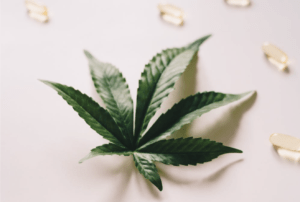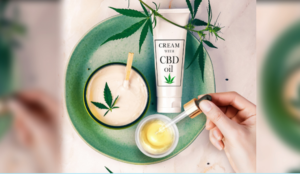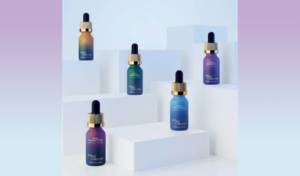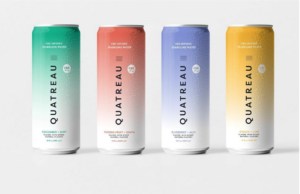EDUCATION
TERPENES: Alpha-Bisabolol Benefits in CBD Skincare
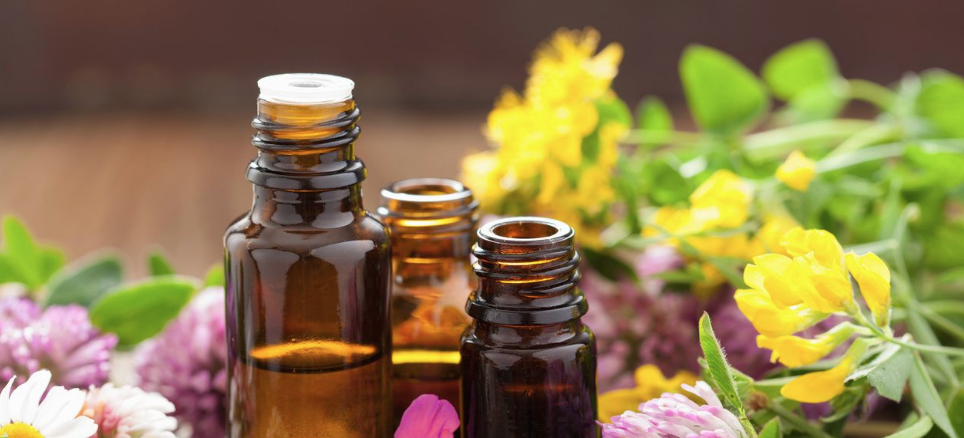
Terpenes: Alpha-Bisabolol Benefits in CBD Skincare
Alpha-bisobolol is a fragrant terpene that adds a sweet floral scent to chamomile tea, soaps and a variety of cosmetic products for people with sensitive skin. But this little-known terpene with the strange name is also found in cannabis—and studies show it has powerful health benefits that include:
- Fighting infection
- Reducing inflammation throughout the body
- Stopping the growth of cancer cells in a lab setting
What Is Alpha-Bisabolol?
Alpha-bisabolol is also called a-bisabolol, levomenol and sometimes simply bisabolol. Alpha-bisabolol is found in a small number of plants, including:
- Chamomile
- The South African candela tree
- Cannabis
There’s also beta-bisabolol, which has a slightly different molecular structure, but it’s found mainly in corn and cotton.
Terpenes are a group of natural compounds that give plants their distinctive scents and flavors. You can often find terpenes in industrial products and cleansers to add scents like lemon or pine.
Terpenes: Alpha-Bisabolol Benefits in CBD Skincare
More than 200 terpenes have been identified in the cannabis plant, and each cannabis strain has a unique terpene profile that contributes to its smell and taste. Many cannabis terpenes have healing benefits of their own, and they also create a synergistic effect when they interact with marijuana cannabinoids like:
Alpha-Bisabolol Benefits in CBD Skincare
RELATED: 3 POPULAR QUESTIONS ABOUT MARIJUANA & TERPENES ANSWERED
In the cannabis plant, alpha-bisabolol is a minor, or secondary, terpene. It’s found in smaller amounts than primary terpenes—a group that includes the potent terpenes such as:
Alpha-bisobolol shares many of their healing benefits, along with some significant medicinal properties of its own.
How Can Alpha-Bisabolol Help Boost Your Health?
Like CBD, alpha-bisabolol:
- Supports the immune system
- Reduces inflammation
- Promotes calm and relaxation
Terpenes: Alpha-Bisabolol Benefits in CBD Skincare
But a number of recent studies have shown that alpha-bisabolol alone can have a profound effect on some serious health conditions.
Alpha-bisabolol can be an effective antibiotic, and it also works synergistically with conventional antibiotic medications to boost their effectiveness. This means this terpene could be an effective treatment for infections caused by bacteria such as E. coli or Staphylococcus aureus.
Alpha-bisabolol can also reduce inflammation, and its extracts are widely used around the world as an anti-inflammatory and wound healer. This terpene seems to reduce the production of cytokines, proteins made by the immune system in response to inflammation.
It also appears to downregulate the production of COX-2 enzymes, which are expressed at sites of inflammation throughout the body. These enzymes promote the production of hormones called prostaglandins, which are responsible for the pain and swelling that accompanies inflammation.
Many people take medications known as COX-2 inhibitors for conditions such as arthritis, but these medications can also raise the risk of stroke by affecting the production of other hormones that nourish and protect blood vessels. Alpha-bisabolol could be a safer treatment for chronic pain and inflammation, without the potentially serious side effects.
Terpenes: Alpha-Bisabolol Benefits in CBD Skincare
Pancreatic cancer remains one of the most difficult cancers to treat. But one lab-based study on the effects of alpha-bisabolol on pancreatic cancer cell lines reveals that this terpene [appears to reduce the mobility and invasiveness of these rapidly growing cells](https://www.ncbi.nlm.n ih.gov/pubmed/26851012).
In general, too, it can support a process called apoptosis, or programmed cell death, which may help to prevent the spread of cancerous cells]. No alpha-bisabolol and cancer studies have been performed on humans as of yet, so more research will need to be completed before we know if this terpene can really form part of an effective cancer treatment.
Like some other cannabis compounds and terpenes, alpha-bisabolol also appears to promote feelings of relaxation. That’s one reason many people claim chamomile tea can reduce feelings of stress and anxiety. So, it seems alpha-bisabolol can be useful for treating conditions such as:
- Depression
- Anxiety
- Insomnia
Its calming properties also make it a useful ingredient in soothing skin preparations for both babies and adults.
How to Take Alpha-Bisabolol
The Food and Drug Administration has declared alpha-bisabolol generally safe for consumption (GRAS), so that folks can safely ingest it or use it on the skin without concerns about toxicity or side effects. Because it has a light, sweet scent, it’s often used in fragrances and to add a pleasing aroma to skin creams, lotions and balms.
You can also purchase alpha-bisabolol as an isolate that can be mixed with a variety of essential oils, added to cosmetic preparations or taken alone. But it’s important to keep in mind that the alpha-bisabolol sold in isolate form may be a synthetic version, or an extract from the South African candela tree, not from cannabis or hemp.
To get the benefits of alpha-bisabolol along with the many other healing compounds in marijuana, consumers can choose from among several cannabis strains that have relatively high levels of this terpene. These include:
Though alpha-bisabolol is a minor terpene, we now know that it seems to have major healing properties that could help improve people’s health and well-being.
Source: HelloMD
Terpenes: Alpha-Bisabolol Benefits in CBD Skincare
WHAT IS MEDICAL MARIJUANA (CANNABIS)?

Harvard Health Blog / Posted Jan. 15, 2018, 10:30 AM
Peter Grinspoon, MD, Contributing Editor
There are few subjects that can stir up stronger emotions among doctors, scientists, researchers, policy makers, and the public than medical marijuana. Is it safe? Should it be legal? Decriminalized? Has its effectiveness been proven? What conditions is it useful for? Is it addictive? How do we keep it out of the hands of teenagers? Is it really the “wonder drug” that people claim it is? Is medical marijuana just a ploy to legalize marijuana in general?
These are just a few of the excellent questions around this subject, questions that I am going to studiously avoid so we can focus on two specific areas: why do patients find it useful, and how can they discuss it with their doctor?
Marijuana is currently legal, on the state level, in 29 states, and in Washington, DC. It is still illegal from the federal government’s perspective. The Obama administration did not make prosecuting medical marijuana even a minor priority. President Donald Trump promised not to interfere with people who use medical marijuana, though his administration is currently threatening to reverse this policy. About 85% of Americans support legalizing medical marijuana, and it is estimated that at least several million Americans currently use it.
Marijuana without the high
Least controversial is the extract from the hemp plant known as CBD (which stands for cannabidiol) because this component of marijuana has little, if any, intoxicating properties. Marijuana itself has more than 100 active components. THC (which stands for tetrahydrocannabinol) is the chemical that causes the “high” that goes along with marijuana consumption. CBD-dominant strains have little or no THC, so patients report very little if any alteration in consciousness.
Patients do, however, report many benefits of CBD, from relieving insomnia, anxiety, spasticity, and pain to treating potentially life-threatening conditions such as epilepsy. One particular form of childhood epilepsy called Dravet syndrome is almost impossible to control, but responds dramatically to a CBD-dominant strain of marijuana called Charlotte’s Web. The videos of this are dramatic.
Uses of medical marijuana
The most common use for medical marijuana in the United States is for pain control. While marijuana isn’t strong enough for severe pain (for example, post-surgical pain or a broken bone), it is quite effective for the chronic pain that plagues millions of Americans, especially as they age. Part of its allure is that it is clearly safer than opiates (it is impossible to overdose on and far less addictive) and it can take the place of NSAIDs such as Advil or Aleve, if people can’t take them due to problems with their kidneys or ulcers or GERD.
In particular, marijuana appears to ease the pain of multiple sclerosis, and nerve pain in general. This is an area where few other options exist, and those that do, such as Neurontin, Lyrica, or opiates are highly sedating. Patients claim that marijuana allows them to resume their previous activities without feeling completely out of it and disengaged.
Along these lines, marijuana is said to be a fantastic muscle relaxant, and people swear by its ability to lessen tremors in Parkinson’s disease. I have also heard of its use quite successfully for fibromyalgia, endometriosis, interstitial cystitis, and most other conditions where the final common pathway is chronic pain.
Marijuana is also used to manage nausea and weight loss, and can be used to treat glaucoma. A highly promising area of research is its use for PTSD in veterans who are returning from combat zones. Many veterans and their therapists report drastic improvement and clamor for more studies, and for a loosening of governmental restrictions on its study. Medical marijuana is also reported to help patients suffering from pain and wasting syndrome associated with HIV, as well as irritable bowel syndrome and Crohn’s disease.
This is not intended to be an inclusive list, but rather to give a brief survey of the types of conditions for which medical marijuana can provide relief. As with all remedies, claims of effectiveness should be critically evaluated and treated with caution.
Talking with your doctor
Many patients find themselves in the situation of wanting to learn more about medical marijuana, but feel embarrassed to bring this up with their doctor. This is in part because the medical community has been, as a whole, overly dismissive of this issue. Doctors are now playing catch-up, and trying to keep ahead of their patients’ knowledge on this issue. Other patients are already using medical marijuana, but don’t know how to tell their doctors about this for fear of being chided or criticized.
My advice for patients is to be entirely open and honest with your physicians and to have high expectations of them. Tell them that you consider this to be part of your care and that you expect them to be educated about it, and to be able to at least point you in the direction of the information you need.
My advice for doctors is that whether you are pro, neutral, or against medical marijuana, patients are embracing it, and although we don’t have rigorous studies and “gold standard” proof of the benefits and risks of medical marijuana, we need to learn about it, be open-minded, and above all, be non-judgmental. Otherwise, our patients will seek out other, less reliable sources of information; they will continue to use it, they just won’t tell us, and there will be that much less trust and strength in our doctor-patient relationship. I often hear complaints from other doctors that there isn’t adequate evidence to recommend medical marijuana, but there is even less scientific evidence for sticking our heads in the sand.





